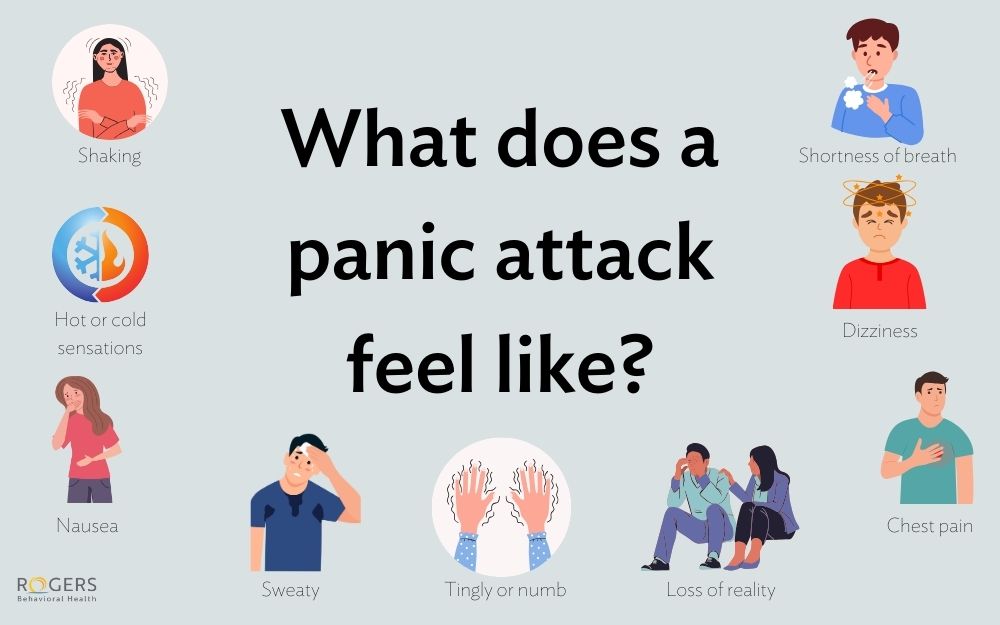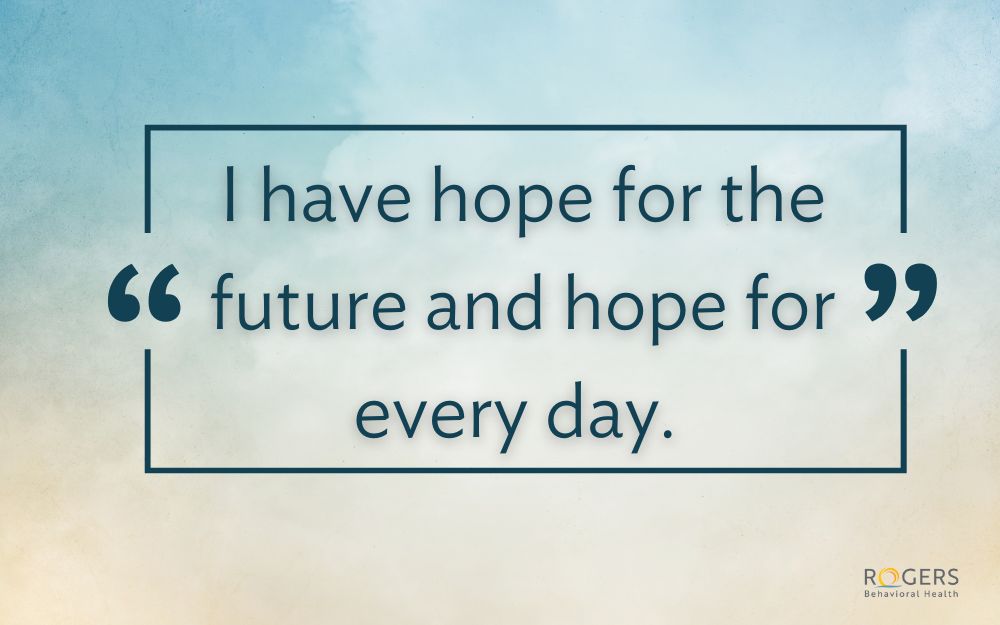Preparing for another season of 13 Reasons Why
Posted on 07/06/18 12:44:pm
Share this article:
The recent release of 13 Reasons Why season 2 is prompting an essential dialogue in our communities related to bullying, depression, sexual assault and harassment, self-harm, suicide, and substance use. Because many of 13RW’s central characters are teens, much of this conversation is taking place in middle and high schools, where many administrators are concerned about the show’s possible consequences. School officials are urging adults to be prepared to process 13RW with the young people in their lives. For more information on the first season of 13RW and the importance of dialogue, click here.
According to Dr. Jerry Halverson, chief medical officer of Rogers Behavioral Health, 13RW presents a great opportunity for real talk. “These conversations with teens are difficult to have but important. The show provides an entrée to discuss the types of issues affecting mental health and can be extremely relevant in a teen’s life. 13 Reasons Why creates the chance to talk about the challenges of peer pressure, trauma, relationships, and substance use,” shares. Dr. Halverson.
While watching 13RW, consider starting a conversation using the suggested questions below. These are taken from a discussion guide that Netflix created as a result of public outcry criticizing the subject matter without ways to support its viewers. Created with the help of organizations like The American Foundation for Suicide Prevention and the American Foundation of Suicidology, among others, this discussion guide contains information about the TV show, tips for watching/ rewatching season 1, definitions and explanations of the subject matter, and ideas to start a conversation with someone who may be facing mental health challenges. Find it here.
- Do you think the characters in the show are behaving in ways that are similar to people you know? How so? How are they different?
- What do you think about what happened in this episode?
- Did parts of the story make you think about how people who are struggling do not show the full picture of what they are dealing with to others?
- What did you learn about “so-and-so character’s” situation from this episode? For example, what did you learn about what happened to Jessica and sexual assault?
- How does what you have seen change how you view some things that happen in real life?
- Do you think the adults did anything wrong? What could they have done better?
- What would you do if you knew a friend was considering suicide or had been sexually assaulted?
- Who would you go to if you were experiencing any of the situations these teens went through?
- Have you ever felt the way that Hannah, Clay or any of the other characters feel? Which ones?
- Have you ever wanted to tell someone about a sexual assault or bullying but worried that it was tattling?
- How do you know when to offer compassion/support/empathy and when to set clear boundaries?
While engaged in this and other discussions involving similar content, do your best to observe the “Seven Promises” for being a “Safe Person”, which can be found here. The Safe Person Decal was created in partnership with WISE, Wisconsin Initiative on Stigma Elimination, to provide more accessible, dependable spaces for those in need, so that people willing to offer support could better connect to those seeking it. Click here for more information or to download and order the Decal.
As you participate in conversations about 13RW, listen to and gauge how your friend or family member is feeling and respond accordingly. If you sense that they are dealing with emotional challenges but are in no danger of harming themselves or others, the most important thing to do is to show them that you’re there for them. Check in frequently, and make yourself available to get together or talk. If possible, connect them to additional support, such as a trusted coach, counselor, family member, friend, or teacher.
In an emergency, get immediate support by calling, texting, or chating the 988 Suicide and Crisis Lifeline, and call 911 or take your family member or friend to the emergency room for assistance.
For additional ideas on how to talk to someone in need of help, click here to read one of WISE’s previous posts.
We urge adults to be aware of and prepared to process 13RW with the young people in their lives. This TV show will impact our communities and systems, but, armed with awareness and resources, we have the ability to influence what that impact will be.
Additional resources:
In response to requests for additional resources following 13RW, Netflix also created many additional resources and tools including a website, found here, for those who may be facing mental health challenges. On the website, one can find a list of advocacy organizations that provide additional services and support as well as the 13RW discussion guide mentioned above.
Since 13RW’s release, other organizations are also more prepared to handle these issues too. Additional resources include:
- The 13 Reasons Why Toolkit created by the Suicide Awareness Voices of Education. This toolkit “provides practical guidance and reliable resources … related to the content of the series” in an effort to “develop tools to help encourage positive responses” to 13RW. Click here to find PDFs for clinicians, educators, media, parents, and youth that provide information on how to identify and help youth who may be affected by the show.
- Common Q & A’s by The Suicide Prevention Resource Center, or SPRC. These questions, asked by community leaders, media, parents, and schools provides resources to help discuss 13RW and access suicide risk and prevention in youth. Find it here.
- A Facebook Webinar by The American School Counselor Association, or ASCA. This provides preparation for 13RW season 2. Find it here.
- A 1-Pager for school staff and parents by the ASCA. This includes training to recognize the warning signs of suicide, as well as what to know about the issues raised in 13RW. Find it here.
- A 13RW Resource Collection by the ASCA. This includes the resources from above and a list of additional resources. Find it here.



